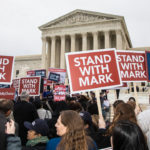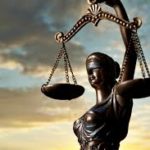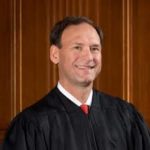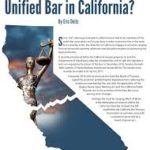Beyond Janus: Revisiting the Unified Bar

A slightly edited version of this essay appeared in Law & Liberty on December 24, 2018–my last post of the year. (Here) Merry Christmas! Thanks to SCOTUSblog (here) and How Appealing. Also, thanks to Real Clear Policy (here).
The era of Lathrop’s “goose-stepping brigades” is about to end.
In a prior post, “After Janus, What’s Next?,” I previewed potential litigation challenges to aspects of public-sector unionism other than the compulsory payment of agency fees. Legal theories abound, including arguments extending the reasoning of Janus v. AFSCME [1] to the concept of exclusive representation itself. “Collective bargaining” under the Wagner Act model empowers unions to negotiate as the sole representative of all workers in a designated unit, even those who oppose union representation. Individuals are stripped of the right to negotiate on their own behalf.
Janus noted that exclusive representation “gives the union a privileged place in negotiations over wages, benefits, and working conditions.” Such collective, non-consensual arrangements smack of coercion. Cases seeking to invalidate exclusive representation for government employees as “compelled speech” are already wending their way to the Supreme Court.

The sweeping scope of Janus goes far beyond labor law, and unraveling of all the dubious precedents that led to Abood may result in legal challenges to other government-sanctioned cartels—such as bar associations whose members are compelled to subsidize the organization’s political activities. There are many parallels between labor unions and bar associations. They are both occupational groups in which membership, and the payment of dues, are often required as a condition of being able to sell one’s services. Both typically participate in political activities (such as lobbying) to varying degrees. Public-sector unions and bar associations both involve the direct exercise of state action—government compulsion. Not surprisingly, therefore, the Supreme Court’s treatment of First Amendment challenges to mandatory membership in unions and bar associations intersected in two Warren Court-era decisions, Railway Employes’ v. Hanson [2] and Lathrop v. Donohue. [3]
The laborious road to Janus allowed the Court to review—and carefully scrutinize–its precedents regarding the constitutionality of mandatory membership arrangements. The body of Supreme Court caselaw in this area was embarrassingly slipshod and haphazard. Justice Samuel Alito led the internal housekeeping effort, and his attention to detail was unstinting. Hanson and Lathrop in particular received a close inspection and were justifiably subjected to withering—and long-overdue–criticism.

The Court’s pre-Janus caselaw tended to treat labor unions interchangeably with bar associations, and casually overruled First Amendment objections to the compelled speech aspects of both. In Hanson (authored by the notoriously-sloppy Justice William O. Douglas), for example, the Court in 1956 rejected a First Amendment challenge to compulsory union membership with a single sentence, opining that
On the present record, there is no more an infringement or impairment of First Amendment rights than there would be in the case of a lawyer who by state law is required to be a member of an integrated bar. [4]
In Harris v. Quinn [5], Justice Alito found Hanson’s analysis to be “thin,” and termed the foregoing statement to be “remarkable,” observing that prior to Hanson
the Court had never previously held that compulsory membership in and the payment of dues to an integrated bar was constitutional, and the constitutionality of such a requirement was hardly a foregone conclusion. Indeed, that issue did not reach the Court until five years later [in Lathrop], and it produced a plurality opinion and four separate writings. (Emphasis added.)
Alito went on to point out that Lathrop, which actually involved a landmark challenge to compulsory bar membership, was even more incoherent than Hanson: Not only was the Court in Lathrop badly fractured, but Douglas, the author of Hanson, dissented in Lathrop, contradicting his own ill-considered dictum about bar associations. Alito noted that
in his Lathrop dissent, Justice Douglas, the author of Hanson, came to the conclusion that the First Amendment did not permit compulsory membership in an integrated bar. The analogy drawn in Hanson, he wrote, fails. “Once we approve this measure,” he warned, “we sanction a device where men and women in almost any profession or calling can be at least partially regimented behind causes which they oppose.” He continued: “I look on the Hanson case as a narrow exception to be closely confined. Unless we so treat it, we practically give carte blanche to any legislature to put at least professional people into goose-stepping brigades. Those brigades are not compatible with the First Amendment.” [6]
These are powerful words, and Alito’s quoting of them was not inadvertent.
In Janus, the Court overruled Abood in part due to its reliance on the flawed reasoning of Hanson and its overly-deferential standard. Following Janus, Hanson and Lathrop seem as vulnerable as Abood was. States requiring lawyers to join and pay dues to bar associations as a condition of practicing law (sometimes referred to a “unified” or “integrated” bar) closely resemble public employers that force all employees to financially support the union by paying agency fees or union dues. California and 30 other states have a “unified” state bar. The Supreme Court has acknowledged that “There is…a substantial analogy between the relationship of the State Bar and its members, on the one hand, and the relationship of the employee unions and their members, on the other.” [7] In Keller, the Supreme Court unanimously ruled that objecting dues-payers were entitled to a partial rebate determined by the amount of the bar’s political activities, similar to prorated agency fees for union members.

While bar associations, which are typically responsible for licensing lawyers and enforcing ethical rules, may not be “inherently” political in the same way that public-sector unions are, most bar associations also employ lobbyists, propose legislation, and take positions on public policy issues—some of them quite controversial. Mandating any financial support of a private organization engaged in political activity (even with a Keller-style rebate) is inconsistent with Janus. Keller expressly relied on Abood, and therefore carries little or no precedential weight. The Court will likely conclude that Janus overruled Keller sub silentio. Alito’s scathing treatment of Lathrop in Harris v. Quinn left that precedent on life-support. The rationale for upholding compulsory dues to unified bar associations has been discredited.
Accordingly, the Court’s recent action in Fleck v. Wetch, overturning an Eighth Circuit ruling that had upheld mandatory bar dues in North Dakota, and remanding the case “for further consideration in light of Janus” appears to be very consequential–handwriting on the proverbial wall. Bar associations, unless they confine themselves to non-political functions such as attorney licensure and discipline, cannot charge mandatory dues. The challenger in Fleck is represented by the Goldwater Institute, and is supported by the Pacific Legal Foundation, which litigated Keller. [Disclosure: The Goldwater Institute represents me in an unrelated matter challenging “release time” under the Texas Constitution.] A similar post-Janus challenge has been filed in Oregon, and more are sure to come. The Supreme Court will have a buffet of cases to choose from.

Some states regulate the practice of law without a unified bar, and that practice will likely not be affected by Janus. Nor will voluntary membership organizations, such as the American Bar Association or the Federalist Society, be affected. Mandatory membership represents coercion, which can easily cross the line into compelled speech. As Goldwater’s Timothy Sandefur has noted, “Associations of lawyers—like the public employee unions at issue in Janus—have a powerful influence over the nation’s politics. That influence is distorted, however, by rules that don’t let lawyers as individuals decide whether or not to be a part of it.” Freedom of association is essential to liberty. Janus forbids compelled speech in the form of government-mandated financial support to private organizations. The unified bar is squarely in the cross-hairs.

[1] 138 S. Ct. 2448 (2018).
[2] 351 U.S. 225 (1956).
[3] 367 U.S. 820 (1961).
[4] 351 U.S. at 238.
[5] 134 S. Ct. 2618, 2629 (2014).
[6] Id. (emphasis in original; citations omitted).
[7] Keller v. State Bar of California, 496 U.S. 1, 12 (1990).































